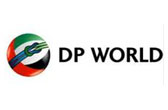Long-Term Infrastructure Gridlock....... Short-Term Congressional Vision!

Now that we have pushed DP World aside, and are now trying to legislate ourselves into a transportation quagmire, with no real US-based organizations able to manage our port network…lets take some stock in our transport infrastructure situation.
You know what really scares me? It is the inability of our transportation infrastructure to keep up with the normal day-to-day strain, pressure imposed on the basic links. Our highways, waterways, railroads and aviation networks are simply not keeping up with these ordinary demands.
A report by the American Society of Civil Engineers, paraphrased here, stated; "In 2005, here's what our infrastructure report card looked like: our aviation system got a D+; navigable waterways a D-; roads a D, and rails a C-.”
Granted, I had a few semesters in college with no better grades, but this the USA we are talking about!
Have we've reached gridlock yet? No…but if we don't do something about it, it's only a matter of time. Why? It's just a simple matter of supply and demand baby! On the supply side, we have four million miles of public roads and bridges. More than 5,200 airports, 163,000 miles of railroad, 9,000 commercial docks, wharves and piers.
That infrastructure is valued at $2.2 trillion dollars, representing 7 percent of all fixed assets in the U.S. But even all these assets aren't enough. Because of the growth in global trade, demand is rapidly outpacing supply! Think China…think India…
So, it's only going to get worse, as ocean cargo volume is expected to double by 2020. And yet, few U.S. ports have channels deep enough to accommodate the largest ocean-going container ships. Our inland waterways that help move goods within the country are also aging and leveraged. Nearly half of the locks on these inland waterways are obsolete, and can’t accommodate any volume!
Back on terra firma, things aren't any better. We depend on trucking to transport 90 percent of the products made or shipped in the U.S. But trucks are increasingly stuck in traffic, going nowhere fast and burning fuel at record costs. Between 1970 and 2003, vehicle travel on highways shot up by 161 percent! What do you think the response was to this increase in traffic from our government? New road mileage increased by only six percent! SIX!
In America's 85 largest metro areas in 2003, 54 percent of travel involved heavy to extreme congestion, up from 20 percent in 1982. Road congestion costs the U.S. economy more than $63 billion every year, and the price tag is going to go up. Road use is expected to increase by nearly two-thirds in the just the next 20 years. We can’t catch up to this exponential growth, no matter how much we spend!
The story sounds familiar on the railways as well…where rail freight tonnage is expected to increase by at least 50 percent by 2020. The U.S. rail system is experiencing unprecedented volume of international freight. In fact, half of all rail intermodal traffic today is international. That's four-and-a-half million trailers and containers. To put that into perspective: In 1980, domestic and international traffic combined equaled three million trailers and containers. WOW! No wonder the rail operators respond to our needs at a snail’s pace!
We simply can not wait on this….or, as a nation, go on like we are! We need to move forward now, we need to step up and make a serious commitment to attack this challenge! The federal government spent about $91 billion on transportation construction in 2004, but we need a new approach. Spending money on our infrastructure is not just the simple answer. Throwing just money at it won’t work. We need to target that spending strategically, using a holistic strategy, with a focus on the long-term.
Holistic? Oh no, not this classic word again!
My meaning is to take into account how all the air, ground and water-based systems work together, and increasing the integration of all these different modes of transport. For example, all the port capacity in the world won't prevent bottlenecks if there isn't enough rail freight capacity on which to unload the ocean shipments. This has to be done on the West Coast, East Coast, and Gulf port gateways!
If we are going to maintain our place as a leading economic nation in the world of trade, we have to have the best infrastructure! We should ask ourselves, whether we're in the public or private sectors: Are we willing to stand by and watch as we slide into gridlock? Or are we willing to take the necessary steps today to ensure a vibrant economy tomorrow? Do we really have a choice?
No, we don’t. We should be focused on these infrastructure issues in Congress, instead of creating a steady stream of reactionary legislation to the DP World debacle. I’m starting my letter writing campaign today…


















